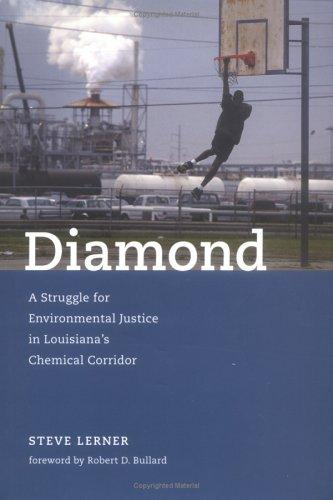Hardcover, 319 pages
English language
Published March 1, 2005 by The MIT Press.
A Struggle for Environmental Justice in Louisiana's Chemical Corridor (Urban and Industrial Environments)

Hardcover, 319 pages
English language
Published March 1, 2005 by The MIT Press.
from the back cover: For years, the residents of Diamond, Louisiana, lived with an inescapable acrid, metallic smell--the "toxic bouquet" of pollution--and a mysterious chemical fog that seeped into their houses. They looked out on the massive Norco Industrial Complex: a maze of pipelines, stacks topped by flares burning off excess gas, and huge oil tankers moving up the Mississippi. They experienced headaches, stinging eyes, allergies, asthma, and other respiratory problems, skin disorders, and cancers that they were convinced were caused by their proximity to heavy industry. Periodic industrial explosions damaged their houses and killed some of their neighbors. Their small, African-American, mixed-income neighborhood was sandwiched between two giant Shell Oil plants in Louisiana's notorious Chemical Corridor. When the residents of Diamond demanded that Shell relocate them, their chances of success seemed slim: a community with little political clout was taking on the second-largest oil company in the world. And …
from the back cover: For years, the residents of Diamond, Louisiana, lived with an inescapable acrid, metallic smell--the "toxic bouquet" of pollution--and a mysterious chemical fog that seeped into their houses. They looked out on the massive Norco Industrial Complex: a maze of pipelines, stacks topped by flares burning off excess gas, and huge oil tankers moving up the Mississippi. They experienced headaches, stinging eyes, allergies, asthma, and other respiratory problems, skin disorders, and cancers that they were convinced were caused by their proximity to heavy industry. Periodic industrial explosions damaged their houses and killed some of their neighbors. Their small, African-American, mixed-income neighborhood was sandwiched between two giant Shell Oil plants in Louisiana's notorious Chemical Corridor. When the residents of Diamond demanded that Shell relocate them, their chances of success seemed slim: a community with little political clout was taking on the second-largest oil company in the world. And yet, after effective grassroots organizing, unremitting fenceline protests, seemingly endless negotiations with Shell officials, and intense media coverage, the people of Diamond finally got what they wanted: money from Shell to help them relocate out of harm's way.